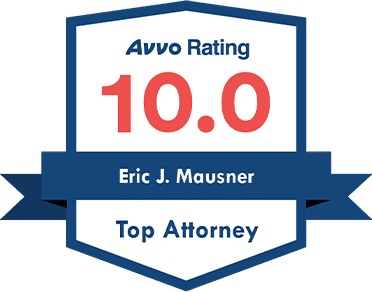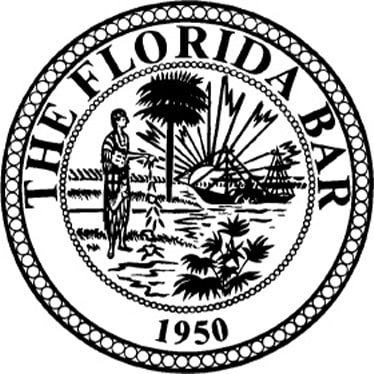Miami-Dade County records over 60,000 car accidents each year, leaving thousands facing steep medical bills and lost wages. Understanding Miami car accident injury compensation is essential to claim the full value you deserve. This comprehensive guide explains average settlement ranges, the impact of Florida’s no-fault law, urgent post-crash steps, the types of damages you can claim, potential liable parties, how Mausner Group Injury Lawyers supports you, and answers common compensation questions.
What Is the Average Car Accident Settlement in Miami?

An average car accident settlement in Miami represents the total compensation paid by insurers or defendants to resolve injury claims. Insurers calculate these figures based on medical expenses, lost earnings, and the degree of fault, with minor-injury cases typically resolving faster and for lower amounts. For example, a rear-end fender-bender with whiplash may settle for $10,000–$25,000, while a catastrophic crash involving spinal damage can exceed $500,000.
Settlement amounts in Miami fluctuate with treatment costs, disability impact, and proof of negligence, setting the stage for understanding detailed calculation factors.
How Are Miami Car Accident Settlements Calculated?
Car accident settlements in Miami combine economic and non-economic damages into one package. Insurers tally actual costs such as medical bills and property repairs (economic damages) and then assign a dollar value to pain and suffering (non-economic damages). A multiplier, often between 1.5 and 5, is applied to economic damages based on injury severity. For instance, $50,000 in medical expenses multiplied by 3 for severe pain yields a $150,000 non-economic award, totaling $200,000.
What Factors Affect the Value of Your Car Accident Claim?
- Injury Severity and Permanence – More serious, lasting injuries justify higher settlements.
- Degree of Negligence – Florida’s modified comparative negligence reduces your award by your percentage of fault.
- Medical Treatment Quality – Detailed records from emergency care, specialist visits, and rehabilitation strengthen your claim.
- Lost Income and Future Earnings – Documented wage loss and diminished future earning capacity factor into the settlement.
These elements combine to form a personalized case valuation, guiding negotiations or litigation strategies.
What Are Typical Settlement Ranges for Minor and Severe Injuries in Miami?
Minor injuries generally settle between $10,000 and $50,000, reflecting outpatient treatment and limited disability. Severe injuries, such as spinal cord damage or crushed bones, often result in $150,000 to over $500,000, depending on long-term care needs. These ranges illustrate how injury impact drives value and highlight the importance of expert advocacy to maximize your award.
How Long Does It Take to Receive a Car Accident Settlement in Florida?
Settlement timelines vary, but most car accident claims in Florida resolve within 6 to 18 months. Minor cases with prompt PIP reimbursements and minimal negotiations may settle in 3–6 months. Complex claims involving extensive medical treatment, serious injuries, or fault disputes can take a year or more. Engaging experienced counsel accelerates documentation gathering, demand preparation, and insurer negotiations, reducing delays.
Get Your FREE Case Review Today
How Does Florida’s No-Fault Law Impact Your Car Accident Injury Compensation?
Florida’s no-fault system mandates Personal Injury Protection (PIP) coverage, ensuring your own insurer pays your medical expenses up to policy limits regardless of fault. This framework streamlines initial treatment claims but limits lawsuits unless you meet the “serious injury” threshold defined by statute. For example, a broken bone or significant disfigurement allows you to bypass PIP limits and pursue full tort damages against the at-fault driver.
What Is Florida’s No-Fault Insurance Law for Car Accidents?
Florida’s no-fault law requires drivers to carry a minimum of $10,000 in PIP coverage, which reimburses 80% of medical costs and 60% of lost wages. This system aims to reduce litigation by handling minor injury claims through insurance benefits rather than lawsuits, covering doctor visits, hospital stays, and rehabilitation without establishing fault.
When Can You File a Bodily Injury Claim Outside the No-Fault System?
You may file a bodily injury lawsuit when your injuries qualify as “serious” under Florida Statute §627.737. Serious injuries include significant and permanent loss of bodily function, disfigurement, or bone fractures. Once this threshold is met, you can seek full compensation for economic and non-economic damages directly from the at-fault party’s liability insurer.
How Do Recent Changes to Florida Personal Injury Laws Affect Your Claim?
House Bill 837 and 2023 reforms reduced the negligence statute of limitations from four to two years and introduced modified comparative negligence. If you bear over 50% fault, you cannot recover damages. These changes emphasize prompt action and professional guidance to navigate the compressed filing window and fault-determination nuances.
What Is the Statute of Limitations for Filing a Car Accident Claim in Florida?
After March 24, 2023, you have two years from the accident date to file a negligence lawsuit. Missing this deadline generally bars your right to recovery, making early consultation critical to preserve your claim and gather timely evidence.
How Does Modified Comparative Negligence Influence Your Compensation?
Under Florida’s modified comparative negligence rule, your compensation is reduced by your percentage of fault. Suppose you are 20% responsible for the crash, a $100,000 award drops to $80,000. However, any fault greater than 50% disqualifies you from recovery, highlighting the importance of skilled representation to minimize alleged fault.
What Steps Should You Take Immediately After a Car Accident in Miami?

Taking the right actions after a crash safeguards your legal rights and strengthens future compensation claims. Documenting the scene, obtaining medical treatment, and consulting a qualified attorney form the cornerstone of any successful injury claim.
What Are the Essential Actions to Protect Your Legal Rights After a Crash?
Immediately after an accident, you should:
- Ensure safety and call 911 for police and medical assistance.
- Exchange insurance information with the other driver and collect witness contacts.
- Document the scene with photos of vehicle damage, road conditions, and visible injuries.
These steps create a factual record, protect health, and lay the groundwork for valid insurance and legal claims.
How Do You Gather and Preserve Evidence for Your Car Accident Claim?
Evidence collection begins at the crash scene with photographs, videos, and police report details. Obtain medical records, treatment invoices, and expert assessments (e.g., biomechanical or medical specialists). Store digital backups and maintain a detailed injury diary tracking pain levels and recovery milestones. Proper evidence preservation prevents challenges to your injury severity and causation.
How Should You Communicate with Insurance Companies After an Accident?
When insurers contact you, provide only basic information: accident date, your policy number, and medical provider details. Avoid recorded statements about fault or injury scope. Instead, direct adjusters to your attorney, who can handle negotiations and protect your interests during settlement discussions.
When Is the Right Time to Contact a Miami Car Accident Lawyer?
You should reach out to a skilled Miami car accident lawyer as soon as possible – ideally within days of the crash. Early legal involvement ensures timely evidence collection, preserves witness statements, and aligns your medical treatment with claim strategies to maximize compensation.
What Types of Injuries and Damages Can You Claim After a Miami Car Accident?
Miami car accident victims can recover a range of damages reflecting economic losses, physical suffering, and punitive measures in exceptional cases. Understanding each category ensures your claim encompasses every compensable harm.
What Are Economic Damages and How Are They Calculated?
Economic damages reimburse objectively verifiable losses such as medical expenses, lost wages, and property repair costs. Insurers calculate these by totaling invoices, pay stubs, and repair estimates. For example, a $12,000 hospital bill plus $5,000 in lost wages results in at least $17,000 in economic damages.
What Are Non-Economic Damages in Florida Car Accident Claims?
Non-economic damages compensate for subjective harms like pain and suffering, emotional distress, and loss of enjoyment of life. Florida allows juries or adjusters to assign monetary values based on injury severity, duration of recovery, and the impact on daily life. A multiplier applied to economic damages often quantifies these intangible losses.
When Are Punitive Damages Awarded in Miami Car Accident Cases?
Punitive damages penalize and deter reckless or egregious behavior, such as DUI crashes or willful misconduct. Awarded rarely, these damages require clear and convincing evidence that the defendant acted with intentional wrongdoing or gross negligence, potentially adding substantial sums to standard compensation.
How Are Specific Injuries Like Whiplash and Spinal Cord Damage Compensated?
Whiplash claims often settle within the PIP limits or slightly above, ranging from $10,000 to $25,000, depending on treatment length. Spinal cord or brain injuries involve complex future care needs – life-care plans, vocational rehabilitation, and assistive technology – which can drive settlements into the high six- or seven-figure range.
Who Can Be Held Liable for Your Miami Car Accident Injuries?
Several parties may share liability for your injuries, each triggering different insurance or legal avenues for recovery. Identifying all responsible entities maximizes your compensation potential.
What Role Do Insurance Companies Play in Your Compensation?
Insurance companies evaluate liability, defend claims, and negotiate settlements. They aim to minimize payouts by disputing fault or injury severity. Skilled attorneys counter insurer tactics, presenting compelling evidence and legal arguments to secure fair offers.
When Are Government Entities or Road Conditions Responsible?
Public entities may bear liability if poorly maintained roads, missing signs, or hazardous design contribute to accidents. Suits against municipalities follow distinct notice requirements and shorter filing deadlines, emphasizing the need for prompt legal action.
How Does Vehicle Manufacturer Liability Affect Your Claim?
Defective parts – faulty brakes, tire blowouts, or airbag failures – can lead to product liability claims against manufacturers, distributors, or dealerships. These cases often involve technical experts and multi-party litigation, potentially increasing overall compensation.
Contact us today for your free & confidential case review. Our team will help you get the compensation that you deserve.
How Can Mausner Group Injury Firm Help You Secure Maximum Car Accident Compensation in Miami?
MG Injury Firm provides dedicated legal representation focused on maximizing your settlement and guiding you through every phase of your claim. Our aggressive advocacy and no-fee-unless-we-win structure provide peace of mind and access to top-tier legal resources.
What Legal Services Does MG Injury Firm Provide for Car Accident Victims?
MG Injury Firm handles case evaluation, evidence gathering, insurer negotiations, and courtroom litigation. We coordinate medical providers, experts, and investigators to build a comprehensive claim that accounts for current and future damages.
How Does a Free Case Review Work and Why Is It Important?
A free case review involves a confidential consultation, where our attorneys assess your accident details, injuries, and insurance coverage. This process identifies strengths, potential challenges, and realistic compensation estimates, empowering you with clear legal direction.
What Is a Contingency Fee Basis and How Does It Benefit You?
Working on a contingency fee basis means you pay no upfront costs; our fees are a percentage of the settlement or verdict we secure. This arrangement aligns our interests with yours and ensures access to experienced counsel regardless of financial constraints.
How Do MG Injury Firm’s Attorneys Use Their Litigation Experience to Fight Insurance Companies?
Our attorneys leverage backgrounds as former prosecutors and litigators to challenge insurer defenses aggressively. We present persuasive evidence, handle depositions and expert testimony, and prepare for trial if necessary, pressuring insurers to offer maximum settlements early.
What Can You Expect During the Settlement and Litigation Process?
From demand letter submission to negotiation sessions, mediation, or courtroom trial, MG Injury Firm maintains clear communication, regular updates, and strategic planning. You can expect professional guidance, timely filings, and focused representation until your case concludes.
What Are Common Questions About Miami Car Accident Injury Compensation?
What Is the Average Settlement for a Car Accident in Miami?
Average settlements vary widely, from $10,000–$50,000 for minor soft-tissue injuries to $150,000–$500,000+ for severe, long-term disabilities.
How Long Do I Have to File a Car Accident Claim in Florida?
You generally have two years from the accident date to file a negligence lawsuit; failure to act within this period typically forfeits your claim.
What Types of Damages Can I Claim After a Miami Car Accident?
You can claim economic damages (medical bills, lost wages), non-economic damages (pain and suffering, emotional distress), and, in rare cases, punitive damages for egregious misconduct.
How Does Florida’s No-Fault Law Affect My Injury Claim?
Florida’s no-fault PIP system covers your initial medical bills and lost wages up to policy limits, but you must meet the “serious injury” threshold to pursue additional liability claims against the at-fault driver.
Frequently Asked Questions
Q: What Should I Do If I Am Injured in a Car Accident in Miami?
A: If you are injured in a car accident in Miami, prioritize your health by seeking medical attention immediately. Document the scene by taking photos and gathering witness information. Report the accident to the police and exchange insurance details with the other driver. It’s crucial to consult with a qualified attorney as soon as possible to understand your rights and begin the claims process effectively. Early legal involvement can significantly impact the outcome of your case.
Q: How Can I Prove Negligence in My Car Accident Claim?
A: To prove negligence in a car accident claim, you must establish that the other driver failed to act with reasonable care, leading to the accident. This involves demonstrating four key elements: duty of care, breach of that duty, causation, and damages. Evidence such as police reports, witness statements, and expert testimony can support your claim. An experienced attorney can help gather and present this evidence effectively to strengthen your case.
Q: What Are the Common Mistakes to Avoid After a Car Accident?
A: After a car accident, avoid admitting fault or making statements that could be interpreted as liability. Do not delay seeking medical treatment, as this can affect your claim. Additionally, refrain from discussing the accident on social media, as these posts can be used against you. Lastly, avoid settling too quickly with insurance companies without fully understanding the extent of your injuries and damages, as this may result in inadequate compensation.
Q: Can I Still File a Claim If I Was Partially at Fault for the Accident?
A: Yes, you can still file a claim if you were partially at fault for the accident due to Florida’s modified comparative negligence law. However, your compensation will be reduced by your percentage of fault. For example, if you are found to be 20% at fault, your total compensation will be reduced by that amount. It’s essential to have legal representation to navigate these complexities and maximize your potential recovery.
Q: What Role Does Medical Documentation Play in My Claim?
A: Medical documentation is crucial in substantiating your injury claims after a car accident. It provides evidence of the extent and nature of your injuries, treatment received, and associated costs. Detailed medical records, bills, and reports from healthcare providers help establish the link between the accident and your injuries, which is vital for both economic and non-economic damages. Proper documentation can significantly influence the outcome of your settlement negotiations.
Q: How Can I Maximize My Car Accident Settlement?
A: To maximize your car accident settlement, ensure you gather comprehensive evidence, including medical records, accident reports, and witness statements. Work with an experienced attorney who can negotiate effectively with insurance companies on your behalf. Document all expenses related to your injuries, including medical bills and lost wages. Additionally, be patient and avoid rushing into a settlement, as taking the time to build a strong case can lead to a more favorable outcome.
Contact Mausner Group Injury Lawyers Today
Understanding Miami car accident injury compensation is crucial for securing the maximum settlement you deserve. By knowing the average settlement ranges, the impact of Florida’s no-fault law, and the steps to take after an accident, you can effectively navigate the claims process. Engaging with experienced legal representation, like MG Injury Firm, ensures that your rights are protected and your claim is thoroughly evaluated. Reach out to us today for a free case review and let us help you achieve the compensation you need to recover fully.
Call Mausner Group today
Free consultation available statewide
Offices in Miami, Doral, and Palmetto Bay
600+ 5-Star Google Reviews
Last Updated Tuesday, July 22nd, 2025











